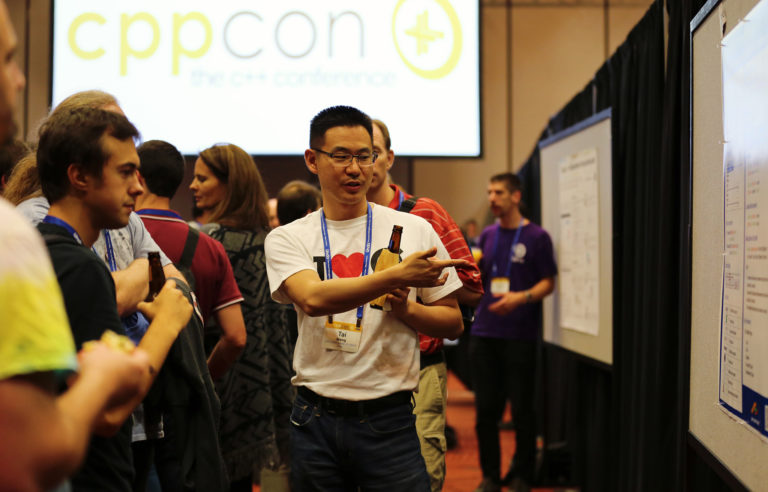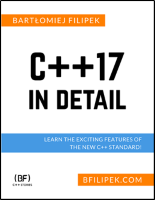CppCon 2017: Tools from the C++ eco-system to save a leg--Anastasia Kazakova
 Have you registered for CppCon 2018 in September? Registration is open now.
Have you registered for CppCon 2018 in September? Registration is open now.
While we wait for this year’s event, we’re featuring videos of some of the 100+ talks from CppCon 2017 for you to enjoy. Here is today’s feature:
Tools from the C++ eco-system to save a leg
by Anastasia Kazakova
Summary of the talk:
C++ gives you enough rope to shoot your leg off. Readable (and thus easy to maintain, easy to support) and error-free code in C++ is often hard to achieve. And while modern C++ standards bring lots of fantastic opportunities and improvements to the language, sometimes they make the task of writing high quality code even harder. Or can’t we just cook them right? Can the tools help?
In this talk I’ll highlight the main trickiness of C++, including readability problems, some real-world issues, problems that grow out of C++ context-dependent parsing. I’ll then try to guide you in how to eliminate them using tools from the C++ eco-system. This will cover code styles and supportive tools, code generation snippets, code analysis (including CLion’s inspections and Data Flow Analysis, C++ Code Guidelines and clang-tidy checks), refactorings. I will also pay some attention to unit testing frameworks and dependency managers as tools that are essential for the high quality code development.

 Have you registered for CppCon 2018 in September?
Have you registered for CppCon 2018 in September?  It's here!
It's here! Have you registered for CppCon 2018 in September?
Have you registered for CppCon 2018 in September?  Have you registered for CppCon 2018 in September?
Have you registered for CppCon 2018 in September?  ACCU’s Overload journal of August 2018 is out. It contains the following C++ related articles.
ACCU’s Overload journal of August 2018 is out. It contains the following C++ related articles. Interested?
Interested? Have you registered for CppCon 2018 in September?
Have you registered for CppCon 2018 in September?  Have you registered for CppCon 2018 in September?
Have you registered for CppCon 2018 in September?